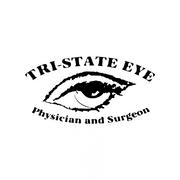
Diabetes is a condition that prevents the body from producing the right amount of insulin or using it efficiently. When blood sugar is too high or low, it can lead to eye problems, including cataracts and diabetic retinopathy. Thankfully, the following care tips will reduce the risk of complications.
A Guide to Eye Care for Diabetics
1. Control Blood Sugar
When blood sugar is too high or low, it can cause blurry vision. Fluid leaks into the lenses of the eyes, making them swell. This makes it challenging for them to focus. If blood sugar is constantly spiking and dropping, this can potentially damage the tiny blood vessels in the eyes, resulting in redness and discomfort.
Listen to your doctor’s instructions on how often to test your blood sugar. Try to keep levels between 80 and 130 milligrams per decilitre (mg/dL) before meals and less than 180 mg/dL two hours after meals.
Add a few eye-friendly foods to your diet. Broccoli contains sulforaphane, a blood-sugar-reducing chemical that can also improve insulin sensitivity. Fatty fish like halibut or salmon provide a healthy dose of Omega-3 fatty acids, which maintain eye health and reduce the risk of diabetic retinopathy.
2. Exercise Regularly

Staying active will lower your blood sugar and pressure and can even raise the body's supply of high-density lipoprotein (HDL) cholesterol. Generally, this good cholesterol keeps blood vessels widened to promote blood flow and prevent eye problems. Try to get at least 30 minutes of aerobic exercise each day. Walking, gardening, and cycling are all good options.
If you've been inactive for a long time, start slow and create a fitness plan with your doctor. Otherwise, it's easy to overwork the body and cause blood sugar to drop. Avoid exercises that put excessive strain on the blood vessels in your eyes, such as high-impact workouts and weightlifting.
3. Wear Sunglasses
Because people with diabetes are at an increased risk of ocular issues, it’s important to take additional steps to protect the eyes. For example, people with diabetes tend to develop cataracts at a younger age than other adults. Since exposure to the sun’s ultraviolet rays can contribute to the disease, as well as macular degeneration, wear sunglasses that filter out both UVA and UVB light whenever you leave the house. Wearing a wide-brimmed hat can also reduce your eyes' exposure to UV rays.
Prevent diabetes-related eye problems with regular visits to Tri-State Eye. Serving the tri-state area, including Middletown, NY, and Milford, PA, they diagnose and treat dry eye, glaucoma, and cataract symptoms. They also write eyeglasses and contact prescriptions. To schedule an appointment at their Middletown office, call (845) 703-2020. For their Milford office, call (570) 296-9696. Visit online to learn more about their services.
About the Business
Have a question? Ask the experts!
Send your question

